Women mental health month – Women’s Mental Health Month is an annual observance dedicated to raising awareness about the unique mental health challenges faced by women and advocating for their well-being. This month provides a platform to break the stigma surrounding mental health issues, particularly for women, and encourages individuals, organizations, and communities to actively participate in promoting mental health awareness and support.
Throughout this month, various initiatives and events will be held to educate the public about women’s mental health, address the underlying causes of mental health disparities, and provide resources and strategies for improving women’s mental well-being. The focus will be on understanding the impact of societal pressures, gender roles, and cultural expectations on women’s mental health, as well as empowering women to seek help and prioritize their mental well-being.
Women’s Mental Health Month

Women’s Mental Health Month, observed annually in May, is a crucial time to raise awareness and address the unique mental health challenges faced by women. This month-long observance aims to break down stigma, promote understanding, and encourage women to prioritize their mental well-being.
History of Women’s Mental Health Month
The movement for Women’s Mental Health Month has evolved over the years, reflecting the growing recognition of the importance of addressing gender disparities in mental health. While a specific date of origin is not readily available, the movement gained significant momentum in the early 2000s, with organizations and individuals advocating for increased awareness and support for women’s mental health.
Importance of Raising Awareness
Raising awareness about women’s mental health issues is paramount for several reasons. Women are disproportionately affected by mental health conditions compared to men. They are more likely to experience anxiety, depression, and eating disorders. This disparity can be attributed to a multitude of factors, including societal expectations, gender roles, and hormonal fluctuations.
Goals and Objectives
The primary goals of Women’s Mental Health Month are to:
- Increase understanding of the unique mental health challenges faced by women.
- Promote early intervention and access to mental health services.
- Reduce stigma and encourage women to seek help when needed.
- Advocate for policies and programs that support women’s mental health.
Understanding Women’s Mental Health Challenges
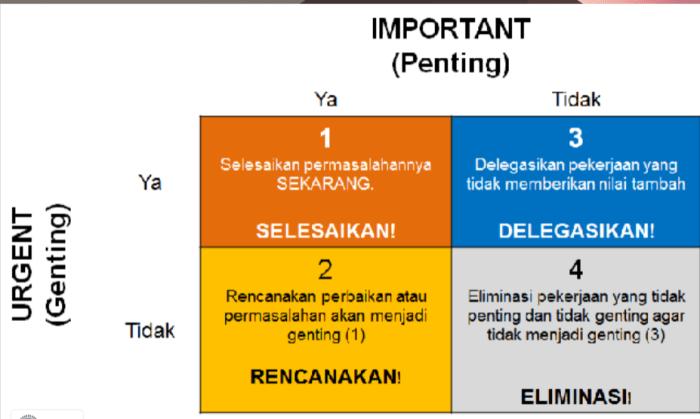
Women’s mental health is a complex and multifaceted issue, influenced by a unique set of factors that contribute to their unique experiences. These challenges often stem from societal pressures, gender roles, and biological differences, leading to a higher prevalence of certain mental health conditions among women compared to men.
Societal Pressures and Gender Roles
The impact of societal pressures and gender roles on women’s mental health is significant. Women are often subjected to unrealistic expectations and stereotypes, leading to feelings of inadequacy and stress. These pressures can manifest in various ways, including:
- Body image concerns:Societal beauty standards often place unrealistic expectations on women’s appearance, leading to body dissatisfaction, eating disorders, and low self-esteem.
- Caregiving responsibilities:Women are often expected to be primary caregivers for children, aging parents, and other family members, leading to role strain and burnout.
- Work-life balance:Women often face challenges balancing work and family responsibilities, leading to stress, anxiety, and difficulty achieving career goals.
- Financial disparities:Gender pay gaps and limited access to resources can contribute to financial stress and insecurity, impacting mental well-being.
These societal pressures and gender roles can create a cycle of stress and anxiety, making women more vulnerable to developing mental health conditions.
Prevalence of Mental Health Conditions
Research consistently shows that women experience a higher prevalence of certain mental health conditions compared to men. For example, studies have found that:
- Anxiety disorders:Women are twice as likely as men to experience anxiety disorders, such as generalized anxiety disorder, panic disorder, and social anxiety disorder.
- Depression:Women are also more likely to experience depression, with rates being 1.5 to 2 times higher than men.
- Eating disorders:Eating disorders, such as anorexia nervosa, bulimia nervosa, and binge eating disorder, are significantly more common among women.
- Post-traumatic stress disorder (PTSD):Women are more likely to experience PTSD, particularly after experiencing sexual assault or intimate partner violence.
These statistics highlight the importance of understanding the unique challenges faced by women and addressing their mental health needs.
Impact of Biological Factors
While societal pressures and gender roles play a significant role, biological factors also contribute to women’s mental health. For example, hormonal fluctuations throughout the menstrual cycle, pregnancy, and menopause can trigger mood swings, anxiety, and other mental health symptoms. Additionally, women are more susceptible to certain neurological conditions, such as Alzheimer’s disease and multiple sclerosis.
Breaking the Stigma
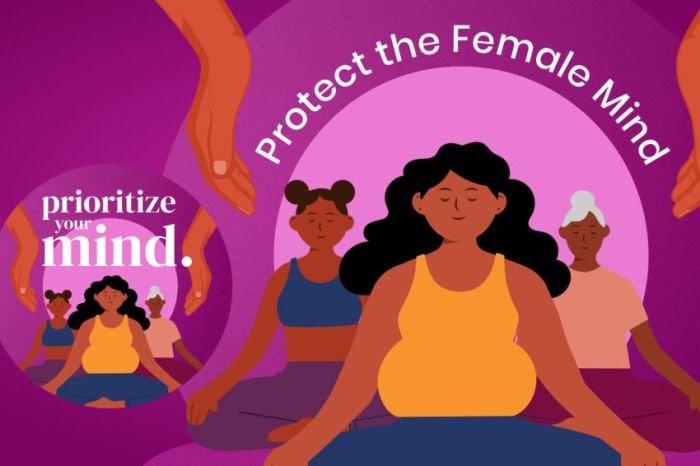
Mental health issues are prevalent, affecting millions of people worldwide, and women are disproportionately impacted. Unfortunately, a significant barrier to seeking help is the stigma surrounding mental health, which can be particularly pronounced for women. This stigma can prevent women from acknowledging their struggles, seeking professional support, and ultimately, achieving recovery.
Women’s Mental Health Month is a crucial time to address the unique challenges women face in their mental well-being. It’s an opportunity to break down stigma and encourage open conversations about mental health. This month, let’s all take a moment to prioritize our own mental health and explore resources that can help, such as the article on tomorrow’s health , which offers valuable insights into maintaining a healthy mind and body.
Reasons for Reluctance to Seek Help
Stigma surrounding mental health can create a sense of shame and fear, discouraging women from seeking help. Many women believe that mental health issues are a sign of weakness or that they should be able to manage their problems on their own.
Women’s Mental Health Month is a crucial time to raise awareness and provide support. If you or someone you know needs help, consider reaching out to resources like the city health center , which offers a range of services for mental well-being.
By prioritizing mental health, we can empower women to thrive and lead fulfilling lives.
They may also worry about being judged by family, friends, or colleagues, or fear that seeking help will lead to discrimination or negative consequences. Furthermore, societal expectations often place pressure on women to be strong, resilient, and able to handle everything without showing vulnerability.
Barriers to Accessing Mental Health Services
Beyond the stigma, there are several practical barriers that hinder women’s access to mental health services. Financial constraints, lack of insurance coverage, limited availability of services, and transportation difficulties can all pose significant obstacles. Additionally, the healthcare system itself can be a barrier, with long wait times, inadequate provider training, and a lack of culturally sensitive services.
Strategies for Overcoming Stigma and Promoting Help-Seeking Behavior
Breaking the stigma surrounding mental health is crucial to empowering women to seek help when they need it. This requires a multifaceted approach that involves education, advocacy, and community support.
Women’s Mental Health Month is a time to prioritize self-care and well-being. Taking a break from daily stresses can be incredibly beneficial, and indulging in a little pampering can be a great way to do just that. A visit to moda beauty bar might be just the thing you need to feel refreshed and rejuvenated, helping you to better manage the challenges that come with life’s ups and downs.
- Raising awareness about mental health issues and promoting open conversations can help reduce the shame and fear associated with seeking help.
- Encouraging positive role models to share their experiences with mental health can demonstrate that seeking help is a sign of strength and self-care.
- Promoting access to affordable and culturally sensitive mental health services is essential to ensure that all women have the opportunity to receive the support they need.
Supporting Women’s Mental Well-being
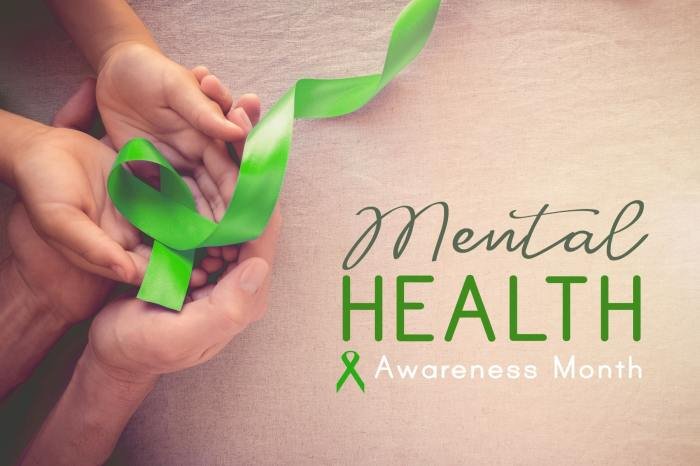
It’s essential to remember that supporting women’s mental well-being is a collaborative effort. It requires a combination of individual actions, community resources, and systemic changes.
Resources for Women Struggling with Mental Health
Seeking help is a sign of strength, not weakness. Here are some resources available to women struggling with mental health:
- Mental Health Professionals:Therapists, counselors, and psychiatrists can provide individual therapy, medication management, and support.
- Support Groups:Connecting with others who share similar experiences can provide validation, understanding, and a sense of community.
- Crisis Hotlines:For immediate support during a mental health crisis, national and local crisis hotlines are available 24/7.
- Online Resources:Websites and apps offer information, tools, and support for mental health concerns. Examples include the National Alliance on Mental Illness (NAMI) and the American Psychological Association (APA).
- Employee Assistance Programs (EAPs):Many employers offer EAPs that provide confidential counseling and other resources to employees.
Promoting Mental Well-being: Practical Tips and Strategies
Taking proactive steps to nurture your mental health is crucial. Here are some practical tips and strategies:
- Self-Care:Engaging in activities that bring you joy, relaxation, and a sense of fulfillment is essential. This could include exercise, spending time in nature, pursuing hobbies, or practicing mindfulness.
- Stress Management:Identifying and managing stress triggers is vital. Techniques like deep breathing exercises, yoga, meditation, and journaling can help reduce stress levels.
- Healthy Coping Mechanisms:Developing healthy coping mechanisms to deal with challenging situations is essential. These can include talking to a trusted friend or family member, engaging in creative activities, or seeking professional support.
- Social Support:Building a strong support network of friends, family, or support groups can provide a sense of belonging, validation, and emotional support.
- Setting Boundaries:Learning to set healthy boundaries with others is crucial for protecting your mental well-being. This involves saying no to requests that drain your energy or compromise your values.
Creating a Supportive Environment for Women’s Mental Health: Women Mental Health Month
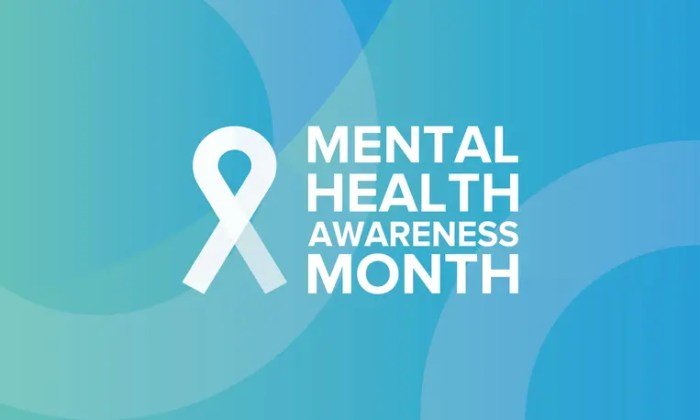
A supportive environment is crucial for women’s mental well-being. It involves fostering understanding, empathy, and a sense of belonging, enabling women to feel comfortable seeking help and support when needed.
The Role of Families, Friends, and Communities
Families, friends, and communities play a significant role in supporting women’s mental health. They provide a vital network of emotional support, encouragement, and practical assistance. A strong support system can help women cope with challenges, reduce stress, and promote resilience.
- Familiescan provide a safe and loving environment, offer practical help, and encourage women to seek professional help when necessary.
- Friendscan offer emotional support, understanding, and a listening ear. They can also provide distraction and companionship, which can be particularly helpful during difficult times.
- Communitiescan create a sense of belonging and offer access to resources and support groups. They can also promote awareness and understanding of mental health issues.
Creating a More Inclusive and Understanding Environment for Women
Creating a more inclusive and understanding environment involves challenging stereotypes, promoting empathy, and fostering a culture of respect. This can involve:
- Promoting open communicationabout mental health issues, encouraging women to share their experiences and seek help without fear of judgment.
- Educating individuals and communitiesabout mental health challenges, dispelling myths, and fostering a better understanding of the unique experiences women may face.
- Creating safe spacesfor women to connect, share their experiences, and access support services.
- Challenging gender stereotypesthat can contribute to mental health stigma and pressure.
The Importance of Education and Awareness-Raising Initiatives, Women mental health month
Education and awareness-raising initiatives are essential for promoting understanding and reducing stigma surrounding women’s mental health. These initiatives can:
- Increase knowledgeabout mental health conditions and their impact on women’s lives.
- Promote early interventionand encourage women to seek help at the first signs of distress.
- Empower womento advocate for their own mental health and support others who are struggling.
Actions to Support Women’s Mental Health
| Individuals | Organizations |
|---|---|
|
|
Final Conclusion
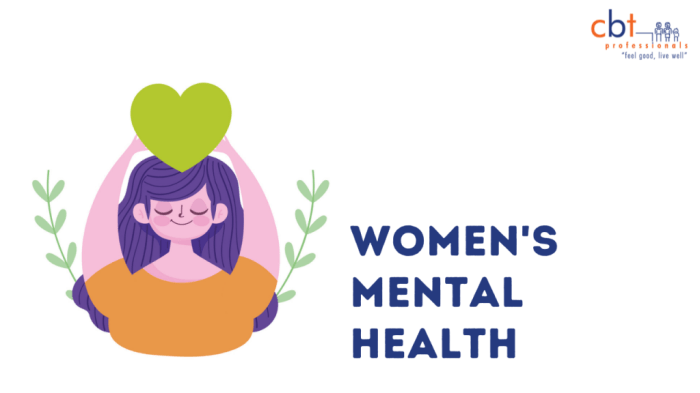
By fostering a culture of understanding, empathy, and support, we can collectively create a world where women feel empowered to prioritize their mental health, access the resources they need, and thrive in all aspects of their lives. Women’s Mental Health Month serves as a powerful reminder that mental health is just as important as physical health, and that by working together, we can make a real difference in the lives of women everywhere.
FAQ Resource
What are some common mental health challenges faced by women?
Women are more likely to experience anxiety, depression, and eating disorders than men. They also face unique challenges related to hormonal changes, reproductive health, and societal pressures.
Why is it important to talk about women’s mental health?
Talking about women’s mental health helps to break the stigma surrounding these issues, encourages women to seek help, and promotes a culture of understanding and support.
How can I support women’s mental health?
You can support women’s mental health by being an active listener, offering encouragement, and providing resources. You can also advocate for policies that promote mental health equity and access to care.